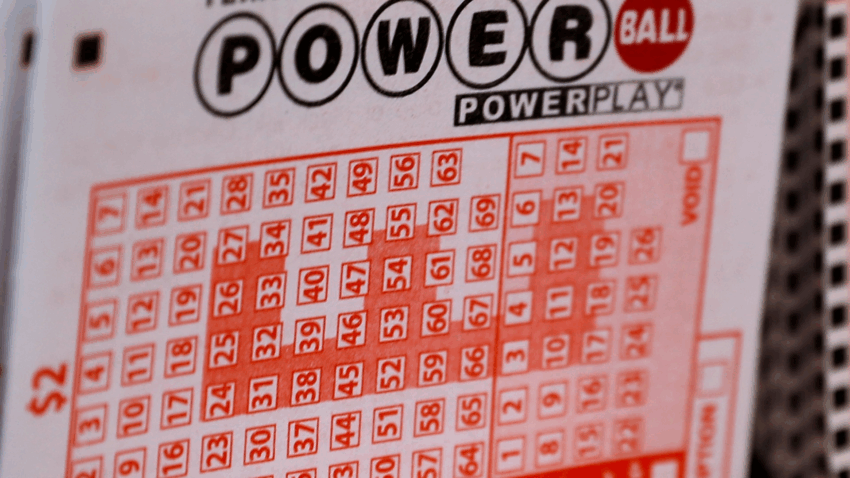Powerball jackpot numbers have long captured the imagination of millions, serving as a beacon of hope for those dreaming of life-changing wealth. Every week, countless players eagerly await the draw, searching for ways to predict these elusive winning numbers. With numerous myths surrounding lottery statistics, many delude themselves into believing they can foresee the outcome through patterns or lucky charms. Recent advancements in artificial intelligence have even led some to explore AI and lottery predictions as a means of improving their odds. However, despite these efforts, the randomness of the lottery reminds us that no method can truly predict the Powerball jackpot numbers with certainty.
The quest to uncover the winning combinations in the Powerball lottery goes beyond mere chance; it embodies a deep-seated desire for triumph and fortune. Capturing the attention of players worldwide, these jackpot sequences not only represent potential riches but also fuel a barrage of speculation and strategies. From evaluating historical data to employing technological tools, enthusiasts continually seek advantageous insights into the mysterious process of drawing winning numbers. The allure of striking it rich leads many to explore common assumptions about lottery systems, including prevalent misconceptions about prior results influencing future outcomes. As we venture into this captivating realm of chance, let’s unravel the myths and explore the reality behind the optimizing of fortune.
The Role of AI in Predicting Powerball Jackpot Numbers
Artificial intelligence (AI) has made a significant impact across various industries, including finance, healthcare, and even entertainment. Within the realm of lotteries, AI tools have been developed to analyze historic data patterns, identifying possible trends in Powerball jackpot numbers. However, it’s critical to understand the limitations of these predictions. For instance, while AI can showcase numbers that have appeared frequently in past draws, this does not alter the inherent randomness of the lottery. Simply put, the probability of any given number appearing remains constant, rendering past appearances irrelevant in predicting future outcomes.
When players rely on AI-generated predictions for their Powerball numbers, they are often tempted by the allure of technology’s promise. Many may believe that leveraging advanced algorithms could increase their chances of winning. However, a closer look at lottery statistics reveals that despite historical data analysis, not even the smartest AI can predict winning combinations with any substantial accuracy. Thus, while AI can provide entertaining insights and patterns, these should not be misconstrued as reliable means of predicting future Powerball success.
Debunking Myths Around Predicting Powerball Winning Numbers
The world of lotteries is rife with myths and misconceptions. One prevalent myth is that certain numbers are ‘luckier’ than others, a notion that stems from a blend of superstition and anecdotal evidence. Many players claim to have personal lucky numbers based on birthdays, anniversaries, or significant life events, leading them to believe that these numbers increase their chances of winning. However, lottery draws are random, and using personal connections to guide numerical choices ultimately does not enhance winning potential. The randomness of each Powerball draw negates the influence of prior results.
Another common misconception is the belief that frequent tracking of drawn numbers can lead to successful predictions. While this practice is popular among players, it is fundamentally flawed. Lottery statistics confirm that each draw is independent, meaning previous results have no bearing on future outcomes. This misunderstanding, unfortunately, leads many to waste time and effort attempting to find patterns where none exist. Recognizing these myths can help lottery fans approach their play with a more realistic and enjoyable perspective, focusing on the fun of participating rather than the false hope of prediction.
Frequently Asked Questions
Can historical Powerball jackpot numbers help predict future winning numbers?
While many players believe that analyzing historical Powerball jackpot numbers can reveal trends, it’s important to note that lottery draws are completely random. The odds of winning remain at approximately 1 in 292.2 million, meaning that past results do not influence future results. Using historical data might make for interesting analysis, but it does not enhance your chances of winning the Powerball lottery.
Are AI predictions for Powerball winning numbers reliable?
AI predictions for Powerball winning numbers may seem intriguing, but they are fundamentally flawed. Although AI can analyze past lottery results to identify frequently drawn numbers, such as 20, 16, and 41, these numbers do not guarantee future wins. The nature of lottery draws is random, and using AI for predictions does not increase your odds of winning the Powerball jackpot.
| Key Point | Details |
|---|---|
| The Nature of Powerball Winning | Winning Powerball is largely about luck with odds of 1 in 292.2 million. |
| Statistical Perspective | Previous results do not influence future outcomes due to the randomness of lottery draws. |
| AI Predictions | AI can analyze past patterns but does not accurately predict future results. |
| Superstitions and Number Choices | Players often choose numbers based on personal significance or perceived luck, which does not enhance winning odds. |
| Real-Life Winners | Inspiring stories exist, but they overshadow the true odds of winning and the many who lose. |
| Conclusion | Lotteries should be approached with fun and enjoyment rather than reliance on dubious prediction methods. |
Summary
Powerball jackpot numbers have captivated millions with their promise of life-changing winnings. However, the reality of winning the Powerball jackpot hinges more on chance than any predictive methodology. While the thrill of selecting numbers, analyzing past draws, or even invoking superstitions can create excitement, the odds remain notably stacked against players. Ultimately, the key takeaway is to play for enjoyment rather than expectation, maintaining a light-hearted approach as each number chosen holds the same random chance of winning as any other.
